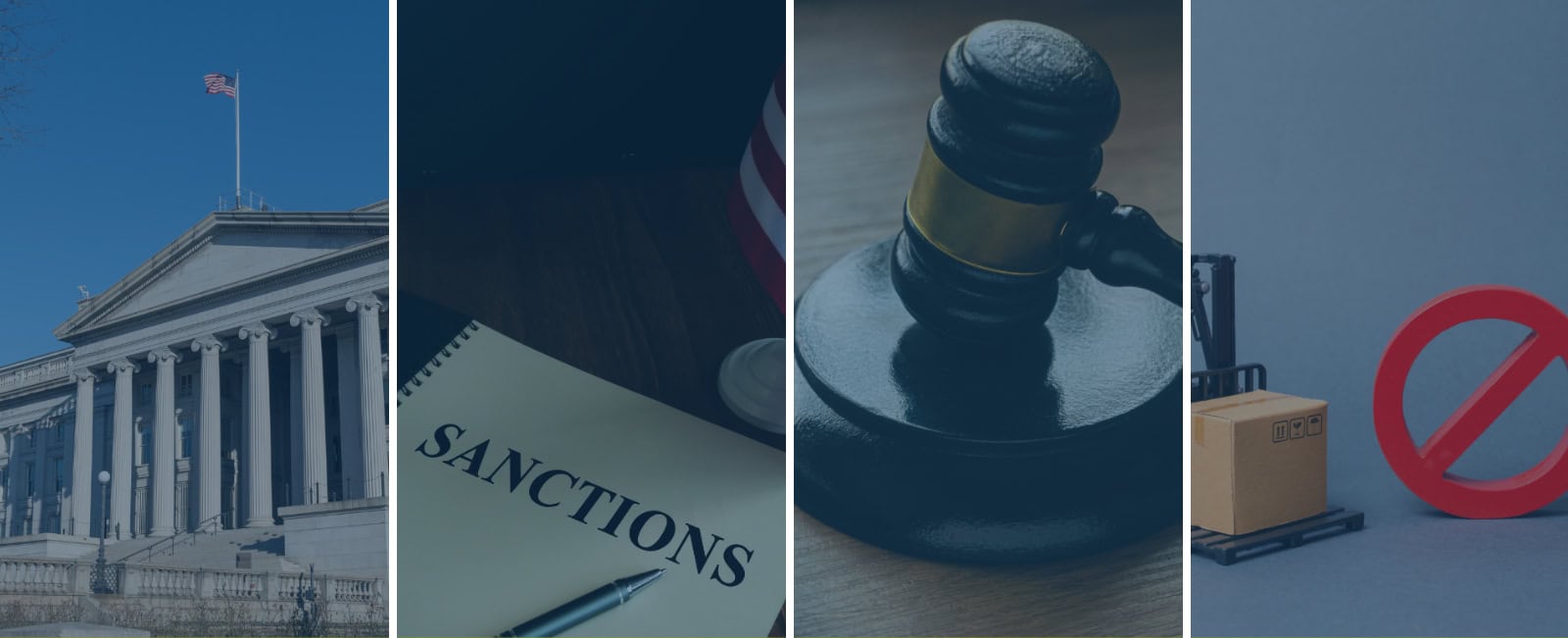OFAC considered the following to be aggravating factors:
- MID-SHIP demonstrated reckless disregard for its obligations to comply with U.S. economic and trade sanctions;
- MID-SHIP managers knew of, and participated in, the conduct giving rise to the apparent violations;
- MID-SHIP’s conduct harmed the integrity of the WMDPSR and its related policy objectives by conferring economic benefit to, and dealing in the services of, IRISL, and
- MID-SHIP is a global, commercially sophisticated shipping and logistics company that operates in a high-risk industry.
OFAC considered the following to be mitigating factors:
- MID-SHIP has not received a Penalty Notice or Finding of Violation from OFAC in the five years preceding the earliest date of the transactions giving rise to the apparent violations, and the transactions constituting the apparent violations account for exactly 0.05 percent of MID-SHIP’s total transactional history during the relevant time period;
- MID-SHIP represents that it undertook remedial measures to improve its compliance with U.S. economic and trade sanctions programs, including by taking the following measures: (a) appointing an OFAC Compliance Officer, (b) providing training regarding U.S. sanctions to employees, (c) regularly publishing OFAC compliance statements to all MID-SHIP offices, directing personnel to be vigilant in ascertaining the complete ownership chain and interests of vessels being negotiated by MID-SHIP brokers and to ensure vessels and entities involved in transactions are not listed on the SDN List, (d) instructing all MID-SHIP shipbrokers to take appropriate measures to include an OFAC compliance clause or clauses in each charter party negotiated by a MID-SHIP shipbroker, (e) screening every vessel and party to a wire transfer against OFAC’s SDN List, and (f) ceasing the processing of a transaction relating to a vessel or party identified on the SDN List and providing a report to MID-SHIP’s OFAC Compliance Officer for further action.
Conclusion:
MID-SHIP agreed to pay $871,837 to settle its potential civil liability for five apparent violations of the Weapons of Mass Destruction Proliferators Sanctions Regulations, 31 C.F.R. part 544
U.S. FRAMEWORK FOR COMPLYING WITH SANCTIONS PROGRAMS (OFAC)
OFAC strongly encourages organizations subject to U.S. jurisdiction, as well as foreign entities that conduct business in or with the United States, U.S. persons, or using U.S.-origin goods or services, to employ a risk-based approach to sanctions compliance by developing, implementing, and routinely updating a sanctions compliance program (SCP). While each risk-based SCP will vary depending on a variety of factors—including the company’s size and sophistication, products and services, customers and counterparties, and geographic locations—each program should be predicated on and incorporate at least five essential components of compliance: (1) management commitment; (2) risk assessment; (3) internal controls; (4) testing and auditing; and (5) training.
If after conducting an investigation and determining that a civil monetary penalty (“CMP”) is the appropriate administrative action in response to an apparent violation, the Office of Compliance and Enforcement (OCE) will determine which of the following or other elements should be incorporated into the subject person’s SCP as part of any accompanying settlement agreement, as appropriate. As in all enforcement cases, OFAC will evaluate a subject person’s SCP in a manner consistent with the Economic Sanctions Enforcement Guidelines (the “Guidelines”). When applying the Guidelines to a given factual situation, OFAC will consider favorably subject persons that had effective SCPs at the time of an apparent violation.
TARIFF CLASSIFICATION OF IMPORTED SAUSAGE CASINGS
[Kalle USA Inc. v. United States]
Facts:
The company imported casings from Germany to be used to encase processed food products (including sausage, ham, and cheese). The casings were comprised of a woven textile sheet that was coated with a thin layer of plastic on one side.
The company imported nine entries of the casings between July and August 2010. The casings were liquidated by U.S. Customs and Border Protection (CBP) in June 2011 under the Harmonized Tariff Schedule of the United States (HTSUS) subheading 6307.90.9 that covers “other made up articles, including dress patterns:…[o]ther… [o]ther” and subject to a customs duty rate of 7%.
The company filed a protest in September 2011, arguing that the casings were properly classified under the HTSUS subheading 3917.39.0050 that covers “[t]ubes, pipes and hoses and fittings therefor (for example, joints, elbows, flanges), of plastics” and subject to a customs duty rate of 3.1%.
Conclusion:
The U.S. Court of Appeals for the Federal Circuit affirmed a judgment of the trade court concerning the tariff classification of imported sausage casings. The trade court granted summary judgment for the government, finding that the casings (comprised of both textile and plastic materials) were not “completely embedded in plastics” and thus were subject to a customs duty rate of 7% (and not the customs duty rate of 3.1% as asserted by the company).
IMPLEMENTATION OF CERTAIN NEW CONTROLS ON EMERGING TECHNOLOGIES AGREED AT WASSENAAR ARRANGEMENT 2018 PLENARY
This rule adds to the EAR’s Commerce Control List (CCL) five recently developed or developing technologies that are essential to the national security of the United States: discrete microwave transistors (a major component of wideband semiconductors), continuity of operation software, post-quantum cryptography, underwater transducers designed to operate as hydrophones, and air-launch platforms.
Revisions to the Commerce Control List Related to WA 2018 Plenary Agreements Revises (4) ECCNs: 3A001, 5A002, 6A001 and 9A004 Added ECCNs: 3D005
Source: https://s3.amazonaws.com/public-inspection.federalregister.gov/2019-10778.pdf
U.S. GUIDELINES FOR IMPORTS OF STEEL, ALUMINUM FROM CANADA, MEXICO
The Office of the U.S. Trade Representative announced the United States reached an agreement with Canada and Mexico to remove the Section 232 tariffs for steel and aluminum imports from those countries and for the removal of all retaliatory tariffs imposed on U.S. goods by those countries.
U.S. Customs and Border Protection (CBP) then issued a release relating to the termination of the additional customs duty under Section 232 for steel and aluminum products of Canada and Mexico imported in the United States. The CBP release—CSMS# 19-000252—explains that for steel or aluminum goods entered for consumption, or withdrawn from warehouse for consumption, on or after 12:01 a.m. eastern daylight time on May 20, 2019, the Section 232 duty on such imports of steel and aluminum articles with the country of origin being either Canada or Mexico will no longer be in effect.
The CBP instructions provide that imports of steel mill and aluminum articles with a country of origin of Canada or Mexico are not to be reported with Harmonized Tariff Schedule (HTS) classification 9903.80.01 or 9903.85.01. Rather, these imports are to be made under the regular Chapter 72 or 73 HTS classification for the imported merchandise (if steel) or the regular Chapter 76 HTS classification for the imported merchandise (if aluminum).
CBP GUIDANCE FOR FREE TRADE ZONES; STEEL AND ALUMINUM IMPORTS
Facts:
U.S. Customs and Border Protection (CBP) issued a release concerning entry filings for “Section 232” free trade zone (FTZ) entries covered by Canada and Mexico duty exemptions. As explained in the CBP release—CSMS #19-000271—concerning imports of steel and aluminum from Canada and Mexico:
- As of June 1, 2018, steel and aluminum articles from Canada and Mexico were subject to the Section 232 duties.
- In May 2019, presidential proclamations amended Proclamation 9704 and Proclamation 9705 with regards to the Section 232 additional duty for steel and aluminum articles from Canada and Mexico.
- Effective for goods entered for consumption, or withdrawn from warehouse for consumption, on or after 12:01 a.m. eastern daylight time on May 20, 2019, the Section 232 duty on imports of steel and aluminum articles with a country of origin of Canada or Mexico is no longer in effect.
Today’s CBP guidance provides the following instructions on submitting type 06 entries of steel and aluminum products with Canada or Mexico as the country of origin (admitted under “privileged foreign status” from June 1, 2018 until May 19, 2019, and entered for consumption after 12:01 a.m. eastern daylight time on May 20, 2019):
Steel Products
- Do not report Harmonized Tariff Schedule (HTS) classification 9903.80.01.
- Report the regular Chapter 72 or 73 HTS classification for the imported merchandise.
- Submit the following product exclusion number in the Importer Additional Declaration Field (54 record) of the entry summary data: STL060000
Aluminum Products
- Do not report HTS classification 9903.85.01.
- Report the regular Chapter 76 HTS classification for the imported merchandise.
- Submit the following product exclusion number in the Importer Additional Declaration Field (54 record) of the entry summary data: ALU020000
The CBP release notes that these product exclusion numbers are CBP-generated numbers to provide for Canadian and Mexican steel and aluminum articles to be entered for consumption from an FTZ without a Section 232 duty.
GUIDELINES FOR DISTRIBUTIONS OF ANTIDUMPING OR COUNTERVAILING DUTIES
The CBP notice states that CBP intends to distribute to affected domestic producers the assessed antidumping or countervailing duties and interest available for distribution in FY 2019 in connection with antidumping duty orders or findings or countervailing duty orders listed in this notice. The distributions will be issued by paper check to the address provided by the claimants.
Notice provides instructions for affected domestic producers (or anyone alleging eligibility to receive a distribution) in filing certifications to claim a distribution. Certifications to obtain a continued dumping and subsidy offset under a particular order or finding must be received by a date that is 60 days after May 31, 2019 (the date when the notice will be published in the Federal Register).


